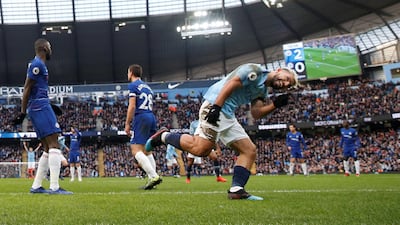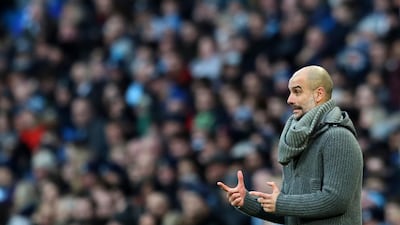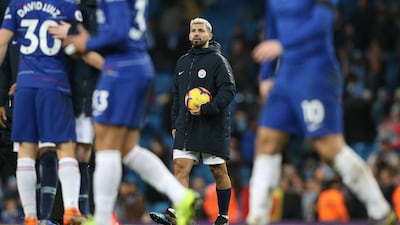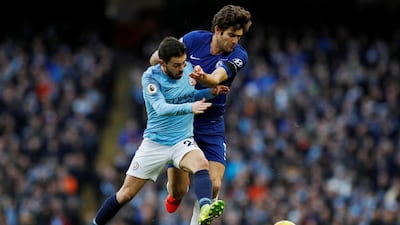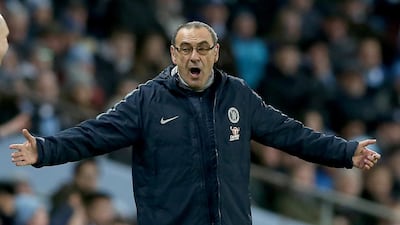For Sergio Aguero, 222 Manchester City goals. For them, 120 for the season. For Chelsea, the first time they had conceded six in a Premier League match. If the figures are eye-catchingly high, some lower numbers have a pertinence.
Consider this sequence: 14, 10, 40, 12, 5, 10, 18, 26, 23, 1, 1, 45 and 4. It is the minute in which City’s opening goal has come in every game since Boxing Day. The side who scored four in the first 25 on Sunday are England’s most reliably fast starters. “Lately we have scored lots of goals in the first five minutes, which is very good,” said Bernardo Silva, who set up Raheem Sterling’s opener against Chelsea.
It is not just lately. Over the course of the season, there are 19 games in which City’s opening goal has come in the first quarter of an hour. They have not just preyed on the weak. They have pierced rivals’ defences quickly, scoring after 12 minutes against Manchester United, six against Tottenham Hotspur, four against Chelsea and one against Arsenal. They have altered the complexion of games before latecomers have taken their seats. They can often then play their passing game with the comfort of a lead.
“It is true that we have been lucky to score early,” added Silva. “It is good to start the game like that. It helps you for the confidence.”
It feels modest to attribute it to luck and Silva did describe the result as “six-nil against one of the best teams in the world.” The beaten Chelsea manager Maurizio Sarri noted: “They press very well with high intensity.” City disrupt from the first whistle. The presence of Silva, who has covered the most distance in a Premier League game this season, in the front three helps that pressing game.
Yet speed of thought has been as important as physicality. The deadlock was broken after Kevin de Bruyne released Silva with a quick free kick. “We tried to take advantage of these situations when the opponent is not very alive,” Silva added.
Dozing defenders tend to be caught out. “The gameplan was the same as always: trying to control the game, trying to have the ball, trying to create chances, trying to press high and we were lucky enough that almost every time we went [into the penalty area] we scored,” Silva explained.
Opponents can be shell-shocked by that capacity to exert pressure from the start, allied with City’s capacity to fashion chances in the final third. They do not allow opponents to settle into a game.
Many of those opening goals have a certain similarity, either a winger or a striker left with a close-range finish from a low cross: for Sterling against Chelsea, read Aguero versus Arsenal, Gabriel Jesus against Wolves or Riyad Mahrez at Tottenham. City specialise in getting a winger behind the defence to supply the selfless centre.
Once again, Sterling is an emblematic figure. Last season, he had a habit of delivering crucial late goals. Now five of his 14 strikes have come in the opening 20 minutes. They are goals that often make the closing stages easier. If his role has evolved, perhaps City have become the antithesis of their neighbours.
Aguero is the scorer of the most famous injury-time goal in Premier League history but if Alex Ferguson’s Manchester United were renowned for delivering late goals, perhaps City have become the modern equivalents of Arsene Wenger’s Arsenal. They scored three goals in the first 16 minutes at Maine Road in 2001, four in 19 the following season. If a match lasts 90 minutes, it can be over in 20. City used to discover that. Now they proved it.
